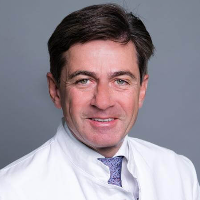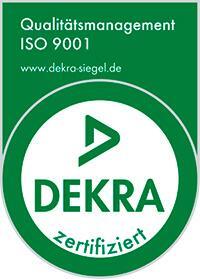Testicular Cancer: Diagnostic in the Best Hospitals in the World
Treatment prices are regulated by national law of the corresponding countries, but can also include additional hospital coefficients. In order to receive the individual cost calculation, please send us the request and medical records.

Department of Adult and Pediatric Urology, Andrology
The Department of Adult and Pediatric Urology, Andrology offers the full range of services in the areas of its specialization. Men and boys with diseases of the reproductive system can be diagnosed and treated in the medical facility. Doctors also treat infertility and erectile dysfunction. Medical care is provided to men and women with diseases of the urinary system, namely kidneys, ureters, bladder, and urethra. The department is certified as the Prostate Cancer Center by the German Cancer Society (DKG), which indicates the excellent quality of the services provided in this area. The department's urologists have a perfect command of the innovative treatment methods, including holmium laser enucleation of the prostate (HoLEP), photodynamic therapy, and da Vinci robot-assisted surgery. The department employs comprehensively trained and experienced doctors who apply advanced medical achievements in their practice. Each patient is provided with an individual approach, considering their specific needs and wishes.







Department of Adult and Pediatric Urology, Andrology
The Department of Urology annually examines more than 730 men with suspected testicular cancer. The department offers all necessary examination methods, including the full range of laboratory tests, ultrasound and tomography, as well as a testicular biopsy with histological examination of the material. The department is headed by Prof. Dr. med. Martin Kriegmair, who is a member of the German Society of Urology, as well as of the European and American Association of Urologists.



Department of Urology
The Department of Urology offers the full range of diagnostics and treatment in this medical field. The department's doctors have excellent qualifications in the treatment of diseases of the kidneys, urinary tract and reproductive organs in men. Of particular interest is the treatment of malignant urological neoplasms, which include prostate cancer, testicular cancer, kidney and bladder cancer. The department has in its arsenal many effective conservative and surgical treatment techniques, which can fully restore men's health.



Testicular cancer is a relatively rare disease. It accounts for about 2% of malignant tumors in men. At the same time, the pathology is detected mainly in young men. The disease is mostly diagnosed at the age of 25-35 years. In this age category, this is the first most common oncological disease. It usually responds well to treatment. Nonetheless, it is important to make an accurate diagnostics in order not only to identify the tumor, but also to understand what kind of histological type it is, what stage the disease has and how to provide the best treatment for it.
Content
- Is it possible to diagnose testicular cancer at an early stage?
- Ultrasound scan
- Blood test
- Biopsy
- Other tests
- Diagnostics abroad with the Booking Health company
Is it possible to diagnose testicular cancer at an early stage?
The diagnostics of testicular cancer at an early stage is possible. Moreover, in most cases, the tumor can be detected early. There are at least two reasons for this:
- The early onset of symptoms of testicular cancer. Even in case of small tumors, a man experiences pain in the scrotum, the scrotum become swollen and contains a lump that can be palpated.
- The men are very careful about their genitals. They do not always consult a specialist in case of symptoms arising from the intestines, bronchopulmonary or cardiovascular system, but the slightest signs of pathology affecting the genitals cause concern, which becomes the reason for visiting a doctor. The doctor may suspect a tumor by palpating the scrotum.
In general, testicular cancer is not common, but if you have reason to believe that you are at risk for this disease, it is worthwhile to conduct a self-examination. Particularly at risk are those who had cryptorchidism, as well as people with burdened heredity.
Below is the instructions for self-examination of the testis:
- You should make the examination after a shower or bath when the scrotum is in a relaxed state.
- You should put aside the penis and carefully examine each testicle.
- You should roll each of them individually between the thumb and forefinger.
When making an examination, the man can detect dense nodules, as well as any changes in the density of the testicles. The location of one testicle below the other is not a sign of pathology, their slightly different sizes, as well as the presence of a small tubercle on the outside of the testicle is an appendage that any man has. Sometimes the man can detect enlarged veins. This is a sign of the disease (varicocele), but it has nothing to do with malignant neoplasms.
Should nodules be detected or one testiscle be swollen, painful, you should see a doctor. He will palpate, make an ultrasound scan and determine exactly whether there is reason to suspect a malignant process.
Ultrasound scan
An ultrasound scan is the main initial diagnostic method for testicular cancer. If the doctor has palpated a suspicious neoplasm, he will certainly prescribe this study for you.
The ultrasound scan helps to understand whether the nodule found in the testicle is dense. If so, in the vast majority of cases it is a malignant tumor, because other dense neoplasms of corresponding localization are almost never found. The doctor can immediately prescribe you an operation to remove the testicle, even without a biopsy.
Blood test
Although ultrasound can detect a testicular tumor, it does not make it possible to determine its histological type. This can be done using a blood test for tumor markers. These include:
- human chorionic gonadotropin with a high probability indicates a non-seminoma tumor, less often this can be a seminoma;
- alpha-fetoprotein levels can often be elevated in non-seminoma tumors, but never increased in case of seminoma.
Thus, the identification of any oncological markers suggests that the neoplasm detected in the scrotum with ultrasound is highly likely to be a non-seminoma tumor. This is important for choosing a treatment method, because only seminomas are sensitive to radiation therapy.
However, the absence of tumor markers in the blood does not mean that a person does not have cancer. Some tumors never produce these substances or do so very rarely. In addition, any cancer in the initial stage does not increase the levels of tumor markers so that the results of the study could be interpreted unambiguously.
Sometimes the patient may be indicated a lactate dehydrogenase test. The levels of this enzyme rises with the spread of the tumor process. A high concentration of LDH indicates an advanced form of testicular cancer.
Biopsy
A biopsy is not used for testicular cancer diagnostics. Firstly, almost any dense mass in the scrotum is cancer, and therefore the diagnosis can be confirmed by ultrasound. A biopsy does not make much sense. Secondly, it is dangerous because it can lead to the spread of the tumor.
Therefore, a histological examination is carried out after the operation to remove the testicle. The tumor fragments are examined under a microscope, after which the doctors make a conclusion on the type of cancer. Based on this, the doctor makes a decision whether the patient needs radiation therapy, whether chemotherapy is required and according to what scheme it should be performed.
The removal of the testicle is very rarely preceded by a biopsy. If the doctor suspects that the neoplasm may be benign, he may not perform an orchiectomy right away. The biopsy is performed in the operating room. The doctor makes an incision above the pubis, while the spermatic cord does not intersect. He removes the testicle and examines it. If there is no sign of cancer, he will put it back into the scrotum and suture the wound. If there is a suspicious neoplasm, its fragment will be immediately examined. Should the malignant process be confirmed, the doctor has to continue the surgical procedure and remove the testicle.
Other tests
Other imaging tests can also be used to assess the stage of testicular cancer. They make it possible to understand whether the tumor spread to the lymph nodes, whether the treatment is effective. The imaging tests are also used to detect recurrence of a tumor after surgery.
Here are the main tests to evaluate the stage of testicular cancer and its spread:
- chest x-ray;
- ultrasound;
- MRI;
- CT.
Only if it is suspected that testicular cancer has spread to the brain or spinal cord is MRI carried out. A CT scan allows for the detection of foci of tumor spread in the liver and lymph nodes. A chest x-ray will be carried out if the spread of testicular cancer to the lungs is suspected.
Sometimes the doctor may carry out a PET scan. It is effective only for seminomas. It is not always possible to evaluate the spread of non-seminoma tumors using a PET scan because these tumors do not accumulate a radionuclide well. A radioactive substance is introduced into the human body and it selectively accumulates in cancer cells. This is followed by CT scan. The drug accumulation sites are determined by the doctor as metastasis.
A bone x-ray can rarely be performed, since testicular cancer can also spread to these areas.
Diagnostics abroad with the Booking Health company
To diagnose testicular cancer, establish the exact stage and plan the most effective treatment, you can go to one of the best hospitals in the world. The Booking Health company can arrange this trip for you. We are dealers in the field of medical tourism and provide the following benefits:
- Selection of the best hospital, which specializes in the diagnostics and treatment of testicular cancer.
- Reduced treatment costs up to 50% due to the lack of additional coefficients for foreign patients.
- Establishment of communication with a urologist who will be involved in your diagnostics and treatment.
- Selection of the most suitable dates for the diagnostics.
- Preparation of a diagnostic program abroad, without the need to repeat previously completed studies.
- Monitoring of the diagnostic and treatment program at all their stages.
- Monitoring of the cost of procedures, financial expenses and the return of all unspent funds upon completion of the program.
- Buying and forwarding of medicines prescribed by a urologist.
- Organization of additional diagnostics or treatment after completion of the main program.
- Communication with the hospital after diagnostics.
We guarantee high-level service. The Booking Health staff will book a hotel and airline tickets for you, help you get a visa, provide the interpreting services and arrange transfers from the airport to the hospital and back.
Authors:
The article was edited by medical experts, board certified doctors Dr. Vadim Zhiliuk and Dr. Sergey Pashchenko. For the treatment of the conditions referred to in the article, you must consult a doctor; the information in the article is not intended for self-medication!
Sources:

